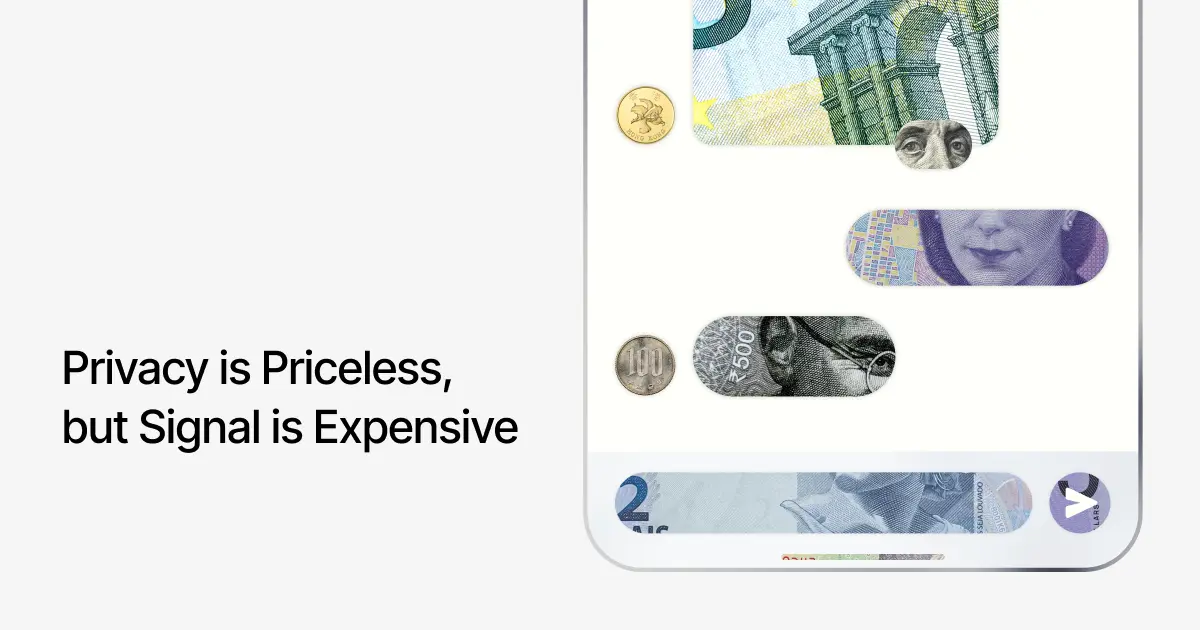- cross-posted to:
- technology@lemmy.world
- cross-posted to:
- technology@lemmy.world
We estimate that by 2025, Signal will require approximately $50 million dollars a year to operate—and this is very lean compared to other popular messaging apps that don’t respect your privacy.



That’s great except barely anyone I know uses Signal, much less XMPP
Neither XMPP nor Matrix will ever become “the next WhatsApp”: the current internet has seen too much consolidation for the tech majors to permit it (and open and federated protocols can’t compete, do not have the marketing budget nor the platforms to promote their software, but I salute the EU’s Market Act attempt to shake-up the status quo).
But that doesn’t really matter IMO. What (I believe) is important in the grand scheme of things is that such protocols remain alive, maintained and secure, so that:
small-scale instances can flourish and contribute to a more resilient/efficient internet (think of family-/district-level providers ; this is the kind of service I personally offer: family members and friends at large appreciate that the messages and data that we exchange aren’t shared over some cloud or facebook server for no good reason)
IM identities can persist over time: if you are a business or an individual, you may want to look into having a stable/lasting contact address, that will survive the inevitable collapse of facebook/whatsapp/instagram/… If you are old enough, your current email address probably existed before facebook. Why not your IM address?
And yes, I hear you, this is rather niche, but what got me there (and on XMPP in particular) is having been long-enough on the internet to become tired of the never-ending cycle of migrations from service to service. More and more people will have a similar experience as time goes, so this niche will only grow :)
While that may or may not be true, it’s really not important for several reasons.
All current XMPP clients I have seen are janky as fuck.
No one is going to spend the billions of dollars necessary to advertise XMPP clients to end users who aren’t actively looking for them.
The vast majority obviously doesn’t care about their privacy.
Just seems like a fruitless endeavour.
Which xmpp clients have you used? Conversations and its forks seem far from janky. Movim is nice, Dino is looking good, Kaidan is looking pretty good. Prose could be interesting.
Indeed. Xmpp is lost as a general purpose chat app for everyone. I have many issues with matrix but it’s the best chance we have, particularly with bridges.
Edit: Sorry, I responded to the wrong parent.
I don’t believe Matrix is better positioned than XMPP to succeed. On a technical aspect, Matrix hasn’t managed to stabilize its protocol, and they’ve been a decade into it. This has resulted in only a single organization being in charge of the protocol, the client and the server implementations. This isn’t sound, this isn’t sustainable. And now, unsurprisingly, this organization is in a financial crisis, has lost important customers, has no budget secured to maintain its staff in the next years, and recently underwent a major licensing change that we can only interpret as a shift towards an opencore model at the detriment of the regular user.
The license change is to a GPL variant from the Apache license. How does that affect the regular user? Wouldn’t it be better?
I can’t pretend to know the future, but if you read between the lines and the justifications provided, this isn’t really about AGPL per se, but about Element brokering AGPL exceptions. Practically we can expect all kinds of forks with opencore options that might enshittify the user experience in different ways, and further solidification of Element’s single-handed control over Matrix (which had been a prime concern for many years). Matrix is by the day closer to the closed-source centralized silos it was first pretending to oppose.